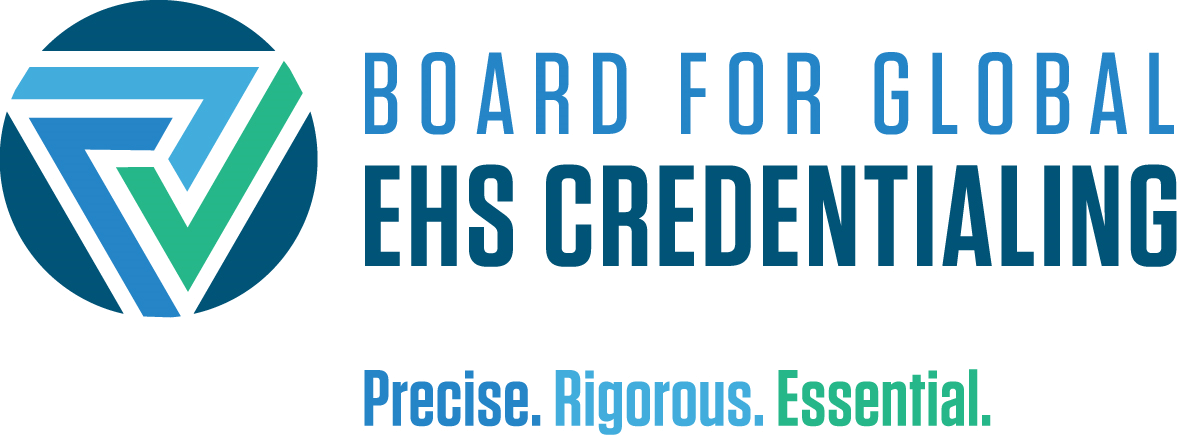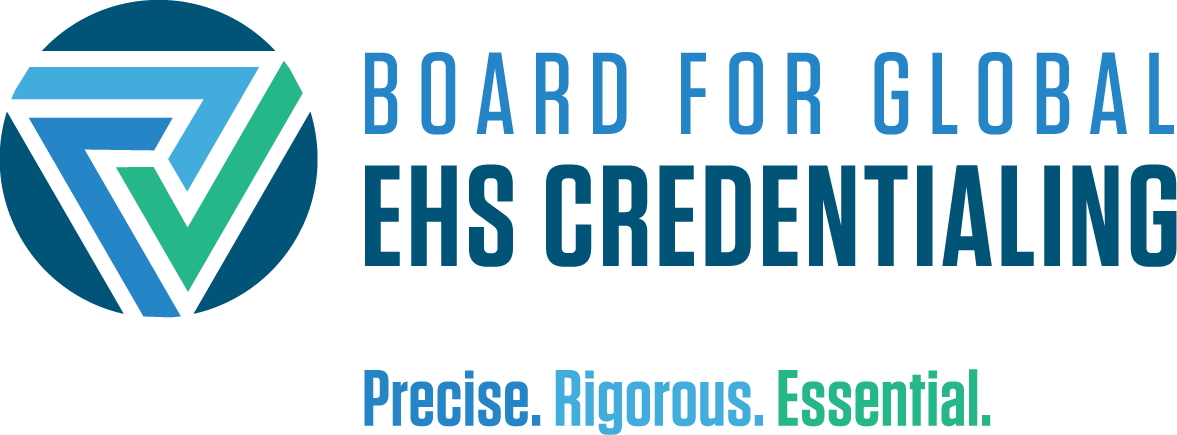Requirements to Be Eligible for the CPSA
Academic Requirements
You must document your education with a verifiable transcript or diploma. You must have a bachelor’s degree from a college or university if you have 7 years of general work experience or an associate degree if you have 10 years of general work experience. Degrees must be conferred by a regionally accredited college or university or from another college that is acceptable to the Board (see details below). A verified secondary school diploma is also acceptable with at least 15 years’ general work experience.
- Path 1 – Bachelor’s Degree with 7 years of general work experience
- Path 2 – Associate Degree with 10 years general work experience
- Path 3 – High School Diploma with 15 years general work experience
Process Safety Training
Relevant experience and training must include identifying process safety aspects and impacts, assessing compliance with process safety-related laws and regulations, and/or applying professional process safety audit practices. It may include any combination of:
- Management of change, process hazard analysis, mechanical integrity, process safety management, and technical aspects of business activities including facility operations.
- Requirements of EPA and OSHA laws, regulations, and related documents at the national and local jurisdictional levels.
- Evaluation, implementation, and management of process safety compliance.
- Process safety standards against which management systems and compliance audits may be conducted.
- Process safety management systems and compliance audit procedures, processes, and techniques.
- Principles of process safety compliance and compliance implementation.
You must submit a Formal Training Form providing evidence of at least 40 hours training in the past three years, at least 32 hours of which should be specific to process safety, and the remaining eight hours should be relevant to auditing, health and safety, or management systems. Training may be internal or external to your organization, but documentation must be available.
Experience Requirements
You must document meeting work experience requirements using the Work Experience Form. To be eligible for the examination, you must have verifiable professional practice experience gained during the last 10 years in at least two of the areas described below:
- Implementation of Process Safety programs
- Process Hazard Analysis
- Management of Change
- Pre-start-up safety reviews
- Mechanical Integrity
- Process Safety Information
- Product Stewardship, Transportation or Distribution of hazardous products
- Requirements of Process Safety laws, regulations, and related documents
- Process Safety Management systems and standards
- Process Safety auditing procedures, processes, and auditing techniques
You must also be engaged in active practice at the time of application. If your process safety auditing career has been interrupted for one year or less (because of unemployment, medical leave, or so on), we will consider you to be “in practice” for up to one year following your last position for the purpose of determining examination eligibility. Any time outside of employment, however, cannot be counted toward experience credit.
Professional-Level Experience
To be recognized as “professional-level” work acceptable to the Board, your experience must meet the following four criteria:
- Independence of actions. This relates to the amount of planning, self-direction, decision-making, and autonomy involved in your work experience.
- Depth of work. This relates to the extent to which your work experience requires data-gathering, analysis, and interpretation.
- Level of interaction. This relates to the degree to which you interact with a broad spectrum of contacts, including decision-makers.
- Responsibility for work outcome. This relates to accuracy and the extent to which you are held accountable for your work and decisions.
 |
Avoid Investigations about the Validity of Your References and Documents: When references from different people have identical wording, they will be investigated to determine who actually prepared the reference. This can cause delays that may cause you to be prevented from taking the exam or being blocked permanently if you are found to have prepared the content of the reference. Sometimes, your supervisors and colleagues who are providing your references may need a memory jog about the work that you have done for them. Provide it verbally, not in writing or from a written job description, so that they are not tempted to cut and paste. Make sure that what you tell them is unique to the job that you did to avoid giving exactly the same information to other references and employers. |
 |
Ineligible Professional Experiences: The following do not count toward the work experience requirement:
|
Professional References
Individuals wishing to apply for an EPI designation must provide three references from environmental professional. Applicants for the EPI must minimally have references submitted from three environmental professionals who are familiar with your academic abilities and achievements such as professors from your degree program. Applicants for the EPI who also have actual environmental work experience are encouraged to obtain references from supervisors or others who are familiar with your environmental work.
Each reference must be provided on the Board’s QEP Professional Reference Questionnaire Form (PRQ), have a hand-written signature (not a typed or script font) or a digital signature, and be prepared only by the person giving the reference. This form can be found on the BGC website in the QEP Documents & Forms section.
Avoid Investigations about the Validity of Your References and Documents: When references from different people have identical wording, they will be investigated to determine who actually prepared the reference. This may cause you to be prevented from taking the exam or being blocked permanently if you are found to have prepared the content of the reference. Sometimes, your supervisors and colleagues who are providing your references may need a memory jog about the work that you have done for them. Provide it verbally, not in writing or from a written job description, so that they are not tempted to cut and paste. Make sure that what you tell them what was unique to the acheivements that you areasking them to base their reference on and avoid giving exactly the same information to others that you are requesting references from.
CPSA Candidate Handbook






